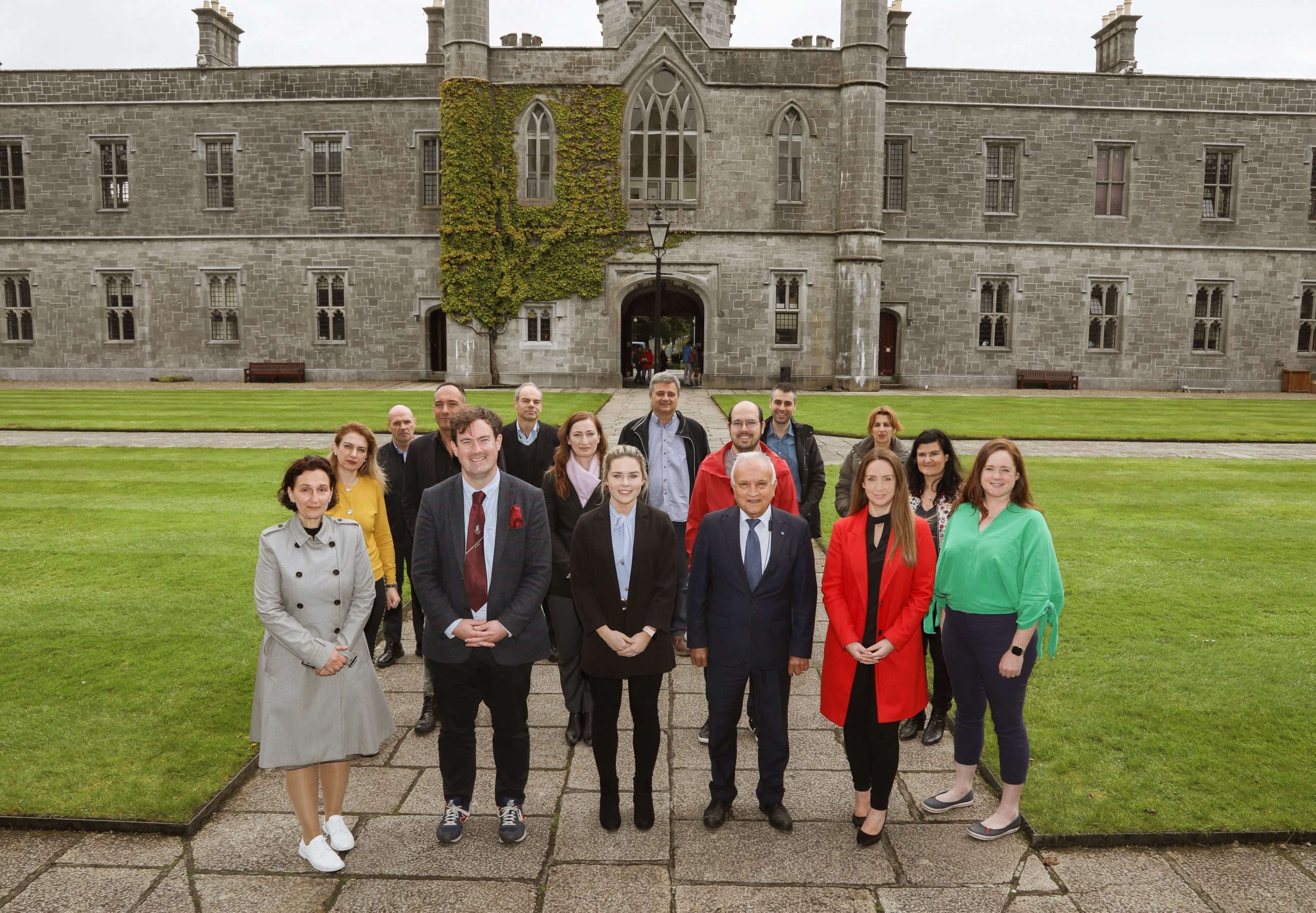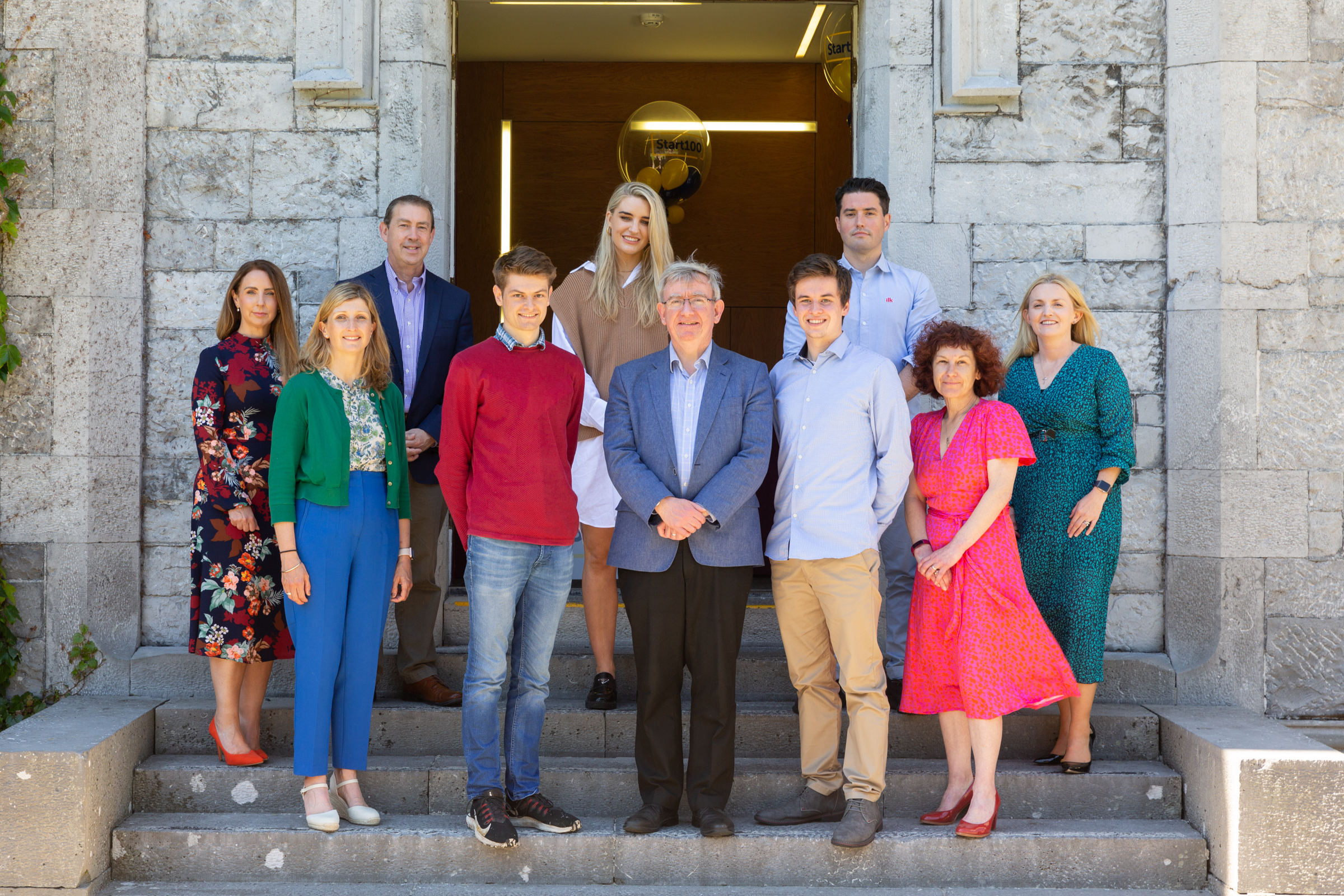Creating structured growth for entrepreneurship
We talked to Natalie Walsh, project lead of Idea to Impact (i2i), to learn more about the project’s achievements to date and how she sees it developing in the future. i2i is one of the pilot projects funded by the EIT HEI Initiative in 2021.
Could you tell us a bit about yourself and your role in i2i?
As a project lead for i2i, my role spans the entire project and focuses on both creating and delivering content and keeping the project on track across our consortium.

Could you briefly tell us about the aim of the project?
The project developed from a clear need across our partners to increase the visibility of entrepreneurship. We wanted to create structures that move entrepreneurship from organic to structured growth and connectivity.
The overarching aim of i2i is to build innovative capacity for staff and students across digital, health, creative and climate. We wanted the project to be broad and inclusive and give partners, our students and staff the opportunity to help us shape aspects of the project, so we could maximise engagement.
How has this initial idea evolved since the start of the project?
I think every project must have enough bend and flex to respond to the ecosystem, and we had factored this into i2i. One key area that has evolved in this late stage of the project is the need to support more women in the innovation space. We have just launched a pilot project at the University of Galway for this, and the mentorship aspect of the project is supported by the EIT.
A second aspect that has developed is partnership. Both within the project and across the Pilot Call group, we now have a critical mass of like-minded people who are working to increase innovation across Europe. This will create new models of engagement, tools and assets, and future partnerships that build on everything we have done so far instead of a fresh start (as is often the case with projects).
How did you learn about the EIT HEI Initiative and the Pilot Call?
We are a partner of EIT Health, and we were keen to expand our network and broaden our engagement beyond health. We had also undertaken a HEInnovate self-assessment. So when the call was shared with us by EIT Health, it perfectly aligned with our plans and vision for the future of innovation.
How has your experience with the EIT HEI Initiative been so far?
Our experience with the EIT HEI Initiative has been excellent! It has connected partners and projects at a deeper level through in-person meetings and trainings – something you don’t always get from EU funding. The initiative has created a real community of practitioners, educators and experts and empowered them to create more opportunities to support our students, staff and ecosystems to develop and grow. The EIT HEI Initiative team work very closely with us. They are responsive and supportive and add real value to the overall initiative through connections, sharing knowledge and advice.
Why did you select the specific partners for your consortium?
We wanted our partners to be diverse and at different stages of their innovation journeys. We wanted a mix of higher education institutions who could share their expertise but also learn from others.
Through our networks and the EIT matchmaking platform, we created a consortium with five higher education institutions from across Europe and three companies that support commercialisation across Ireland and Bulgaria. We also have eight associate partners who support our events and activities.
What have been the main achievements of your project to date?
We have overachieved on all project goals in Phase I and Phase II so far. This shows that there is a real need for capacity-building training and an interest in developing entrepreneurship and innovation. Since 2021, i2i has trained almost 1 000 participants spanning academic, non academic and student cohorts. In 2023, we plan to train an additional 200−300 across our partner sites, which when combined with mentoring has the potential to transform our entrepreneurial ecosystems into the future.
We have launched an online platform to build a community across the consortium at our own sites and at project level. The platform allows us to easily connect and share resources.
We are supporting two sites with developing their alumni engagement. This is an excellent way to build capacity across sites, specifically in the mentoring space.
We have also created a new women’s entrepreneurship programme, which will run from January until March 2023. For every space available we have five applications, which shows there is a real need for the programme. The women’s entrepreneurship programme is something we are keen to develop at the post-programme stage.
Thanks to our work so far, creativity, entrepreneurship and innovation are now recognised as enablers of student success and have been included in our partner universities’ strategy documents.
What is the biggest challenge that the consortium has had to overcome so far?
We have worked incredibly well, given the constraints of our project. When our project was selected, we were still working remotely so we only met as a consortium in May 2022. We had not worked together before, so there was a period of getting to know one another.
I think the biggest challenge has been around timing and our semesters and exam periods running differently. It has resulted in us running programmes locally on our sites with shared content instead of being able to bring students together. If I had one wish from the project, it would be that we had included either a summer school or bootcamp where students could learn but also connect with one another.
What have been your favourite memories from the project so far?
We have worked incredibly well, given the constraints of our project. When our project was selected, we were still working remotely so we only met as a consortium in May 2022. We had not worked together before, so there was a period of getting to know one another.
I think the biggest challenge has been around timing and our semesters and exam periods running differently. It has resulted in us running programmes locally on our sites with shared content instead of being able to bring students together. If I had one wish from the project, it would be that we had included either a summer school or bootcamp where students could learn but also connect with one another.
What have been your favourite memories from the project so far?
For me it was hosting our consortium in Galway. It always rains in Galway, so we had mentioned this to our consortium and advised that they come prepared. But the weather was beautiful! We had two days of excellent meetings where we really advanced aspects of the project. We also created new events and activities for partners who wanted additional advice and support. Meeting in person was fantastic. Our project definitely benefitted from it, and we feel more strongly connected.
I also think meeting partners in Bologna from across the network was really beneficial. We met with projects that we could learn from and share with, and even potentially work with on future proposals. We left feeling very positive and looking forward to the next chapter for our project.
What can the EIT HEI Initiative community expect from your project in the coming months?
We expect our mentoring to grow and develop in the coming months. We have created a suite of assets to support mentorship development and are excited to see where that goes.
In Galway, we are piloting our women’s entrepreneurship programme #CreateHER, and are very excited to deliver it over the next months.
We will also run our staff and student programmes across our sites. This is always exciting, as we get to work with future innovators and entrepreneurs and see what the next big idea might be.
We will also continue to look for opportunities to take our lessons learnt from i2i and disseminate them. We have been invited to present our summer accelerator at the 2023 University Industry Innovation Network conference in Budapest, so we are looking forward to sharing insights and key lessons from that.
What is the vision for i2i past the funding period? How do you plan to scale your work?
Firstly, we have invested in the system and that will support us to continue to develop and grow our community through a self-service approach. Secondly, our mentoring training will continue at the post-programme stage, which has opportunity to scale and grow. And lastly, we will use training materials created through i2i beyond the project stage and are in the latter stages of developing our innovation toolkits, which will be available on our platform and project website.
What are project participants saying about i2i?
As part of the i2i project, in 2022 the University of Galway launched a new student incubator programme called Start100. The aim of the programme was to help students with an early-stage concept to transform their ideas into investible innovations. After an intensive six-week training, nine teams of students presented their innovative ideas to a panel of judges from the worlds of academia, research, industry and enterprise. The winner of the overall Start100 award was ICTUS Medical − a painless monitoring device that empowers stroke survivors to take control of their health by detecting sleeping strokes. The quote below is from team lead and recent Biomedical Engineering graduate Peter Best-Lydon:
‘We are absolutely delighted to win. Start100 has been a massive help to us with all of the connections that we have made. It was great to get a sense of working in a start-up. We are really looking forward to making a significant impact to the patient.’
Learn more about i2i. You can find more projects funded by the EIT HEI Initiative in the Projects section.
Share your experience with the EIT HEI Initiative and inspire higher education institutions across Europe to boost their innovation and entrepreneurship capacity.
Publication: 1 February 2023

